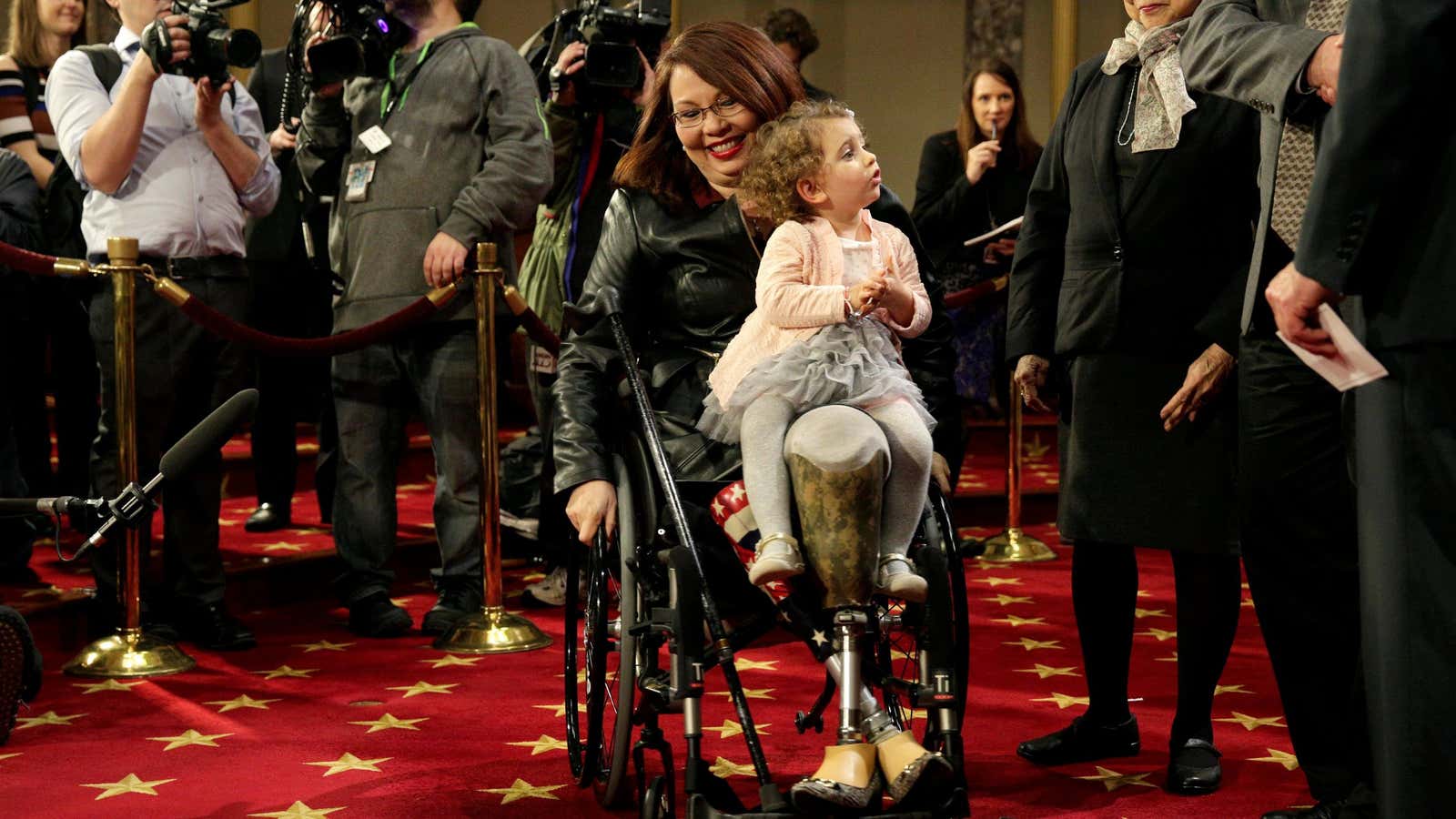On April 9, Tammy Duckworth became the first US senator to give birth in office. Now the Illinois Democrat has achieved another milestone: On Wednesday (April 18), her colleagues approved her resolution allowing senators to bring their young children onto the floor during votes.
The resolution passed unanimously, despite some rumblings from the predominantly-male body of senators. “But what if there are 10 babies on the floor of the Senate?” Utah senator Orrin Hatch fretted. Other senators purportedly voiced concerns about whether babies would be breastfed on the Senate floor, and what would happen if the baby cried during a vote.
At the heart of these concerns is an underlying fear that allowing new parents to bring their babies onto the Senate floor will alter the governing body’s rules of decorum. In fact, Duckworth’s resolution almost certainly will change Senate culture—and that’s a good thing. Many of the Senate’s current rules and traditions are out of touch with contemporary society, and can certainly make female senators (of which there are now 22) feel unwelcome.
Consider, for example, that when a record 20 women were elected to the 113th Senate in 2012, they discovered that their restroom had only two stalls. They arranged to expand the Senate women’s bathroom in 2013. Meanwhile, the female members of the House had to wait until 2011 to get a restroom near the House floor.
As recently as 2009, the Senate swimming pool was male-only; it took an intervention from former senator Kay Hagan and senator Chuck Schumer to make the pool co-ed. Why? Because some of the male senators liked to swim naked.
And in the present day, because US senators have to be physically present to vote from the floor, working from home while nursing an infant is not an option, and taking maternity leave means giving up the right to vote or to sponsor legislation. That’s created plenty of hurdles for new mothers. Back in 2009, senator Kirsten Gillibrand was asked to preside over the Senate from 5 to 7pm, which was when she needed to nurse her son. In her memoir, Off the Sidelines, Gillibrand wrote: “I tried to explain to the young male Senate staffer who issued my orders that these hours were impossible: I had an infant whom I needed to nurse at that time, and if I didn’t feed him, I’d be extremely uncomfortable. … The staffer didn’t care.” Because of Senate rules, she couldn’t hand her child to a staffer while she voted, nor could she bring him onto the Senate floor with her. So Gillibrand got permission to hover at the threshold of a door to the Senate floor, holding her son while leaning her head in to vote.
In all of these ways, the institutional rules and culture of the Senate have served as barriers to remind women that they are intruders into what was, until quite recently, an all-male space. That’s why senator Duckworth’s new bill is such an important step. It signals to female senators that having a child is no longer considered a pre-existing condition that prevents them from doing their jobs.
At least some senators welcomed the cultural shift. “I think it would do us good, every once in a while, to see a pacifier next to the antique inkwells on our desks, or a diaper bag next to a brass spittoon that hasn’t been used in decades,” Illinois senator Dick Durbin said in a statement. “Perhaps the cry of a baby will shock this Senate into speaking up and even crying out on the issues that confront our nation and world.” And senator Marco Rubio said he was unconcerned about the Senate being overrun by infants. “Why would I object to it?” he joked. “We have plenty of babies on the floor.”
